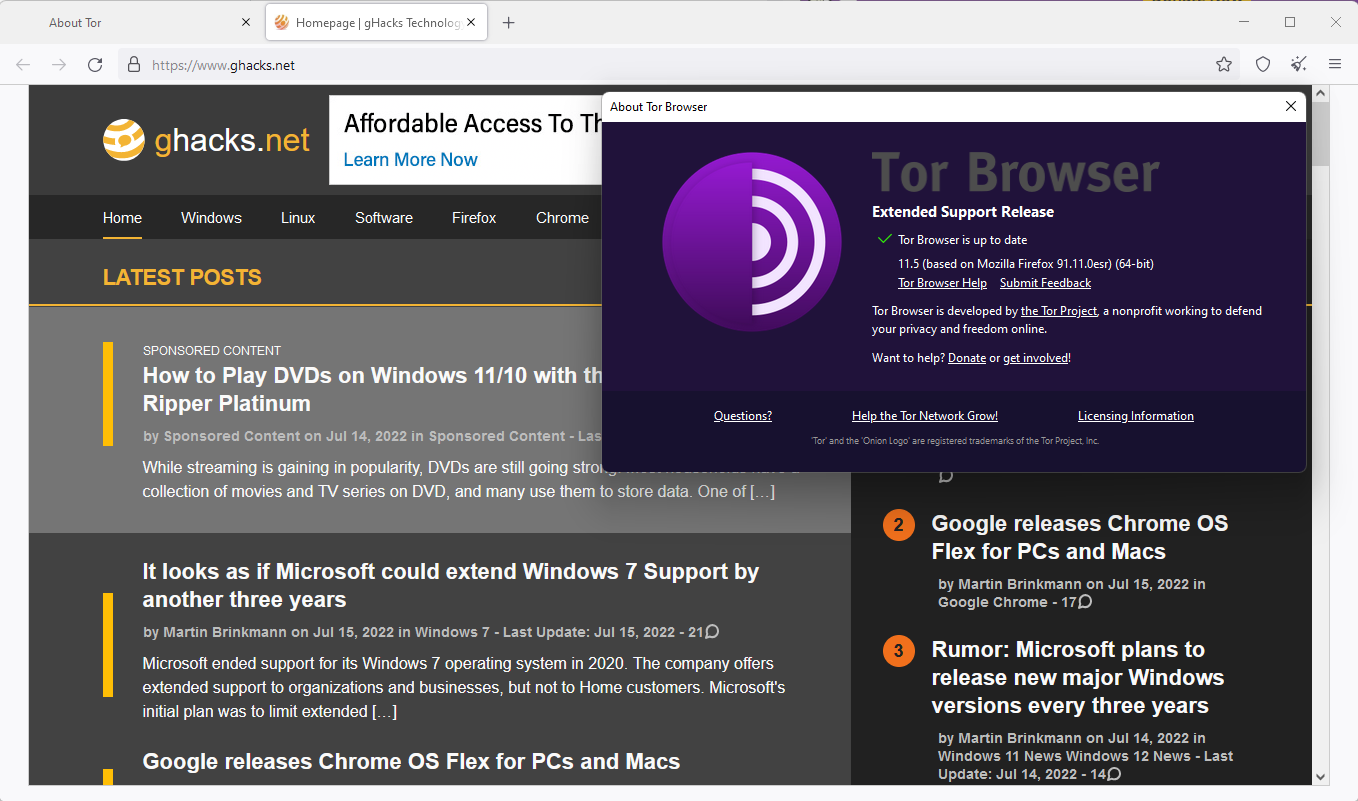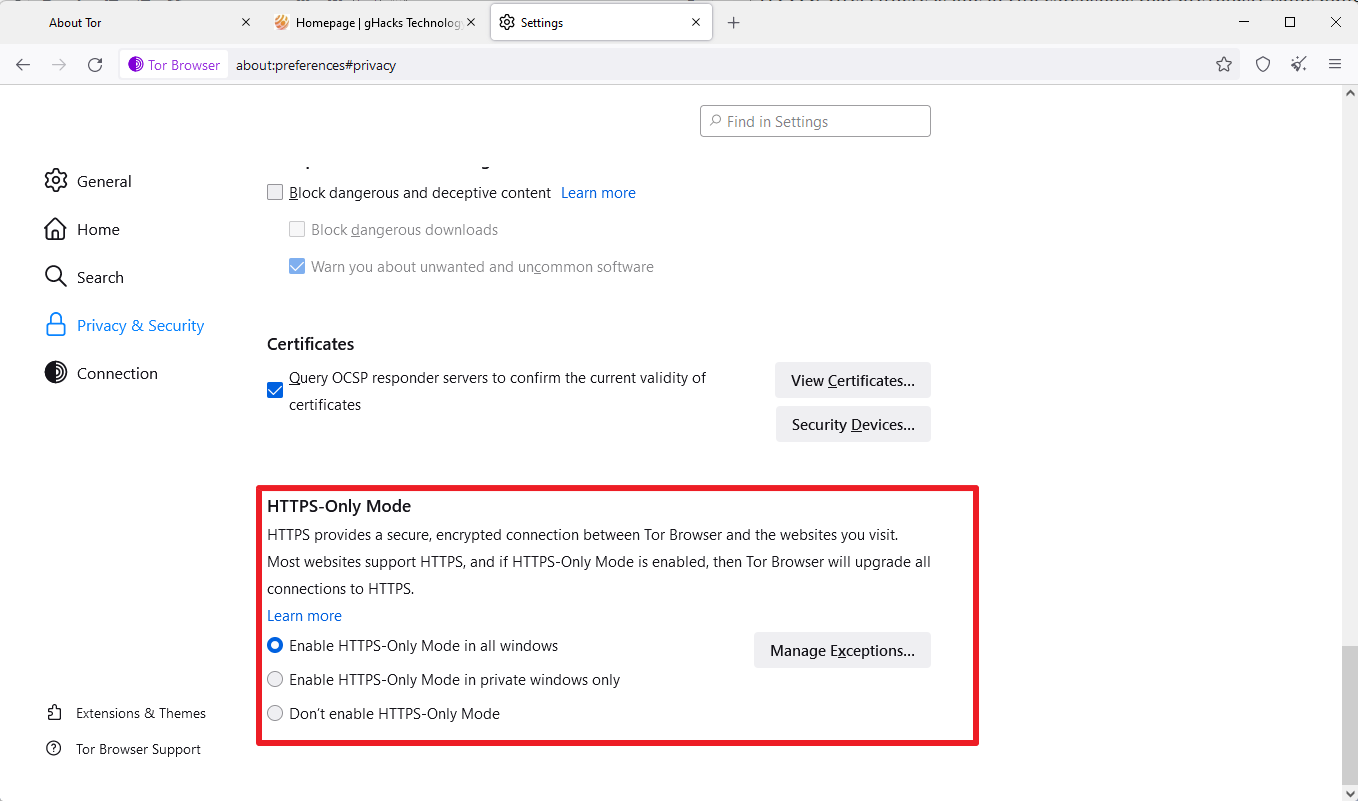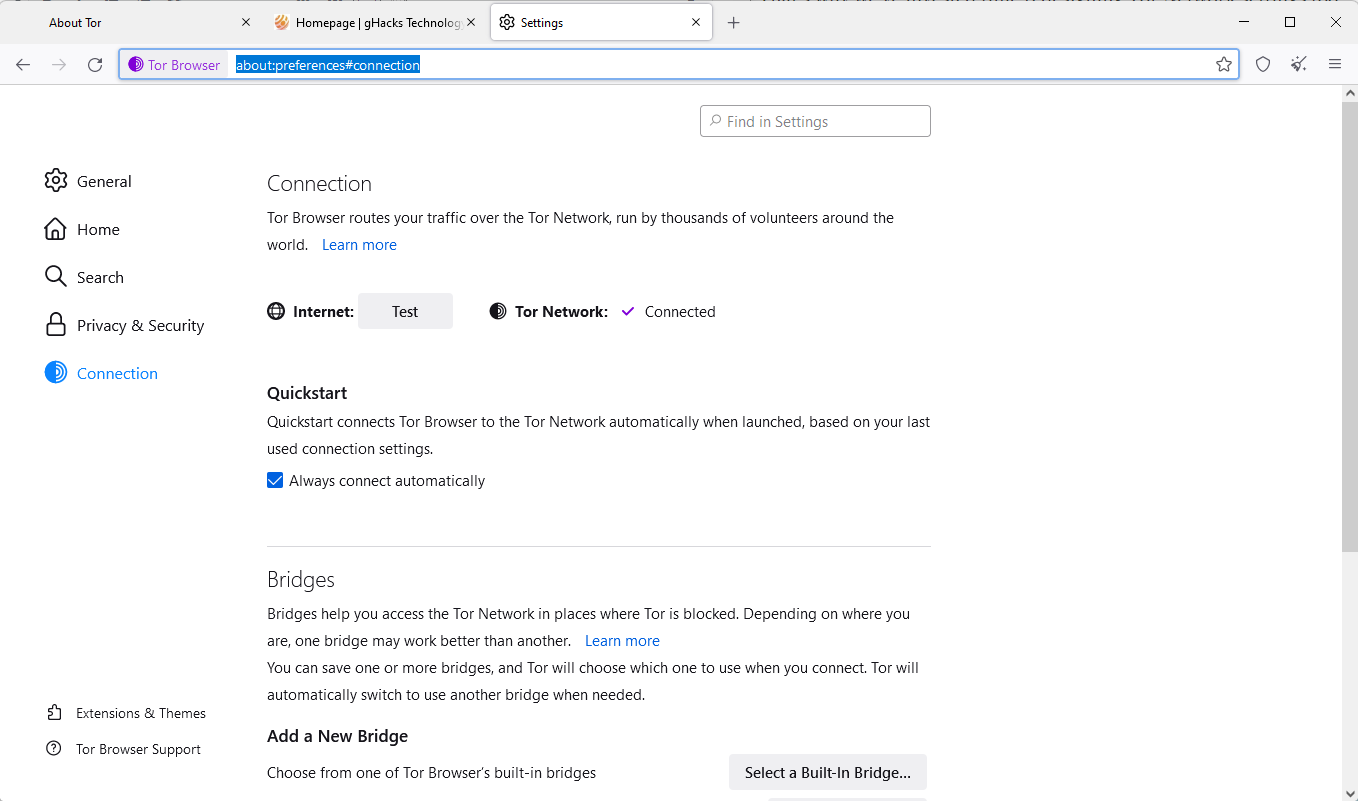Tor Project announced the release of Tor Browser 11.5, the latest version of the open source web browser that is designed to help people circumvent censorship and stay anonymous.

It achieves this by routing network traffic through a series of Tor network nodes and limiting node information; this improves user privacy through anonymity and helps circumvent censorship. Some Internet resources may be blocked in specific regions or countries, and Tor Browser is a viable option to access these resources.
Tor Browser 11.5 is a major release that introduces the new Connection Assist feature, default HTTPS-only mode, and redesigned network settings.
Connection Assist
Tor project engineers began to improve the connection experience in Tor Browser 10.5, which was released last year. One of the main changes was the integration of the connection flow in the browser. Previously, users had to use Tor Launcher for that.
While that improved the process, it still required manual configuration, for example, to find out how to get Tor Browser working with Bridges to unblock its capabilities. Tor Network is blocked in several countries, including Russia, Belarus and China.
Connection Assist is a new automated feature that is designed to apply these configurations automatically for the user. The feature removes the manual configuration process from the equation in the best case, so that Tor Browser users can start browsing the Internet right away.
Connection Assist relies on a list that contains country-specific options. The list is downloaded and then used by Tor Browser.
Connection Assist works by looking up and downloading an up-to-date list of country-specific options to try using your location (with your consent). It manages to do so without needing to connect to the Tor Network first by utilizing moat – the same domain-fronting tool that Tor Browser uses to request a bridge from torproject.org.
HTTPS-only Mode Default

Tor Browser used HTTPS Everywhere previously to provide access to HTTPS resources whenever possible. Mozilla introduced support for HTTPS-Only in Firefox some time ago to give Firefox users an option to prioritize HTTPS over HTTP, or even block HTTP connections entirely.
Tor Browser, which is based on Firefox ESR, makes use of the HTTPS-Only mode now as well. Unlike Firefox, which has it disabled by default, it is enabled in Tor Browser. The HTTPS Everywhere extension is no longer bundled with Tor Browser as a consequence. The developer of the extension announced its retirement in 2021.
Sites that do not support HTTPS can still be accessed, as it is possible to add exceptions in the settings. Tor Browser users may disable HTTPS-Only mode in the settings by loading about:preferences#privacy as well, but this is not advised.
Improved Tor Network Settings

The network settings have undergone a redesign in the new Tor Browser release. Connection Assist should help many Tor Browser users automatically, but it still may be necessary to make manual adjustments. Also, some Tor users may want to make manual configuration changes.
Tor Network Settings has been renamed to Connection settings. These can be accessed by loading about:preferences#connection in the address bar.
The page displays the last connection status and an option to test the Internet connection without using Tor.
Managing bridges is now a streamlined process, and there are new bridge cards, which provide the most important details about a bridge on first glance.
Other changes in Tor Browser 11.5
Tor Browser comes with a list of bundled fonts. The new version includes more fonts to improve font display on the Internet.
Tor Browser for Android is lagging behind when it comes to features. Development focused on improving Tor for Android, for instance by fixing crashes and other issues that users experienced. The main goal is to catch up with Firefox for Android and to catch up with the desktop feature set eventually. For now, all features mentioned above are only available in the desktop version of Tor Browser.
Now You: do you use Tor Browser? What is your take on the changes?
Thank you for being a Ghacks reader. The post Tor Browser's Connection Assist takes the frustration out of censorship circumvention appeared first on gHacks Technology News.
